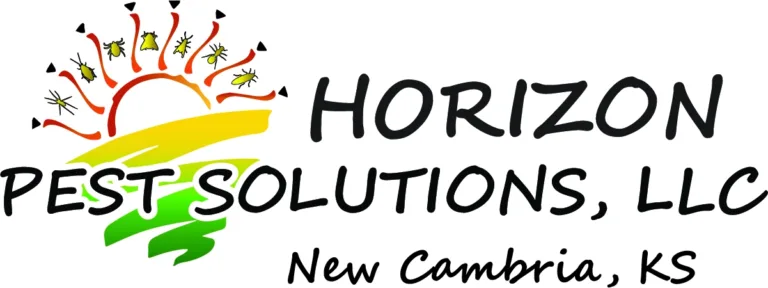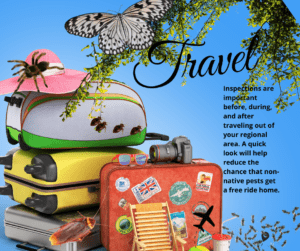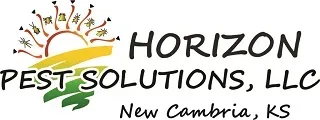As I fly home from vacation, I am wiping biscotti crumbs from the book I was reading. Coffee is keeping me awake. The roar of the engine is vibrating my seat. Yes. The middle seat sucks! Safety on an airplane is important, Seatbelt is buckled. Feet are on the floor. I am forced to share armrests with seat mates I don’t know. Did I follow the flight attendant’s mandatory instructions? Meehhh.

More important than the potential of cookie crumbs between the binding of my book as a conducive condition to stored product pest’s harborage is the fact that some unintentional hitchhikers would be on this airplane. It’s not what you are thinking. Insects transferred from one location to another is common when people go on vacation, travel in tightly cramped spaces, and share food trays. Transfer of insects and other pests pose health risks, have environmental impacts, and otherwise become crises when travel is frequent.

While it’s true that living beings, insects included, won’t and can’t live everywhere. It’s best not to purposely take that creepy crawly souvenir home. Inspections aren’t just for homes and businesses during regularly scheduled pest management service. A thorough bird’s eye viewing before, during, and after traveling minimizes the likelihood of unwanted pest transfers. (Make those freeloaders buy a ticket.) Better yet, punch their ticket to the great beyond.
Health risks can arise if you find yourself allergic to a non-native insect, spider, rodent, or other pest. Your primary doctor can’t be all-knowing when it comes to pest-related symptoms, or the illness caused by being bitten, stung, or touched by species outside of your normal home area. A correct diagnosis would be difficult, and treatment delayed.
Taking an unexpected visitor home from your travel can have consequences for the environment. A non-native pest does not have a natural predator in your home region. It can become an invasive species and mutate and adapt. If your vacation destination was a beach, that ornate seashell you found is harboring a creature that isn’t fit for a cooler climate.
There are several insects, vertebrates, and other animals that are on the endangered species list. Exposing these creatures to a non-native organism has consequential effects to the survival of both species. The Fish and Wildlife Service organization placed certain animals, plants, and insects on the Endangered Species List to help protect them while they try to repopulate. Any interruption in that process would be detrimental to their survival. Taking a species off the endangered list helps us all.
As the first leg of my flight is coming to an end, I can’t help but wonder: Is that service cart really clean? When was the last time pest control treated this plane? What insects were found? Is the plastic lifejacket under my seat OK to use or did a mouse chew a hole in it? The toddler sitting across the aisle from has Cheerios. I’ll bet those are better than the “burnt cookie” tasting free biscotti.
Horizon Pest Solutions is here to help you do those inspections and take care of those unwanted hitchhikers. Just call.


